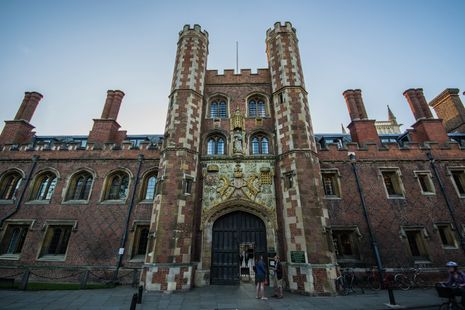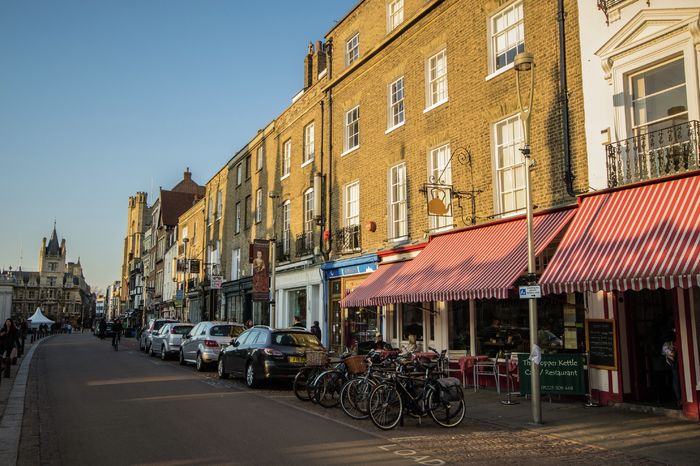Now is the time to redistribute college resources
As students across Cambridge struggle to cope with the consequences of the coronavirus, affluent colleges should increase contributions to more widely accessible hardship funding.

The Cambridge system has cultivated long-standing wealth inequalities between colleges, with institutions maintaining a great deal of autonomy in how they regulate their spending. But while “normal” circumstances might shield the more privileged segments of our community to the reality of students’ unequal access to resources, the coronavirus reveals this system’s innate vulnerabilities. College wealth should not determine the support a student receives in this crisis. Now is the time for affluent colleges to increase support for hardship funding available to all students and for redistributive efforts like the Colleges Fund.
There is much to be said for collegiate Cambridge. Colleges give a sense of “home” to undergraduates and graduates alike, creating communities of friendship and support on which many students rely. But a decentralized system complete with the quirks of multi-century management also comes with its share of disadvantages. Cambridge students have long confronted the flaws of the college system, from the absence of living wages to unethical investment, unequal menstrual product provision, and unclear protocols for reporting sexual violence. In addition, colleges have attracted criticism from inside and outside the university for allowing privilege to influence admissions processes.
"For wealthy colleges, pre-existing hardship funds might offer faster and more comprehensive support to students in need."
Access to financial resources remains perhaps the starkest disparity between Cambridge colleges. Indeed, advice for choosing a college often begins with the importance of an institution’s endowment. The distribution of the colleges’ £7 billion in cumulative wealth helps explain such guidance. In 2018, Trinity’s £1.34 billion in assets represented 42 times those of Clare Hall, the poorest of the 31 colleges. For students, those differences correspond to real variation in the opportunities available to them. With over £780 million in 2018, St. John’s can offer its students grants for books, stationary, conferences, childcare, personal travel, and more. Clare Hall, on the other hand, can only offer £100 in total (£250 for a second or third year) toward costs like books or conferences for graduate students alone.
The coronavirus makes these inequities more serious. Some students are now increasingly reliant on the university to provide a place of safety for them, and many have been thrown into personal and financial precarity. To better support students during this period of instability, the university has established certain financial hardship funding to which everyone has access. This funding remains limited, however, with the university directing students to first seek hardship support from their colleges. For wealthy colleges, pre-existing hardship funds might offer faster and more comprehensive support to students in need. At King’s, for example, the standing Supplementary Exhibition Fund almost certainly benefits from the college’s approximately £350 million in assets. Trinity Hall (with approximately £275 million in assets) has drawn on hardship funding to “help students with the costs of unexpected travel arrangements.” Trinity Hall offers a further example of college inequities with its appeal to donors for pandemic-related student support funds. Wealthy colleges benefit from existing assets while seeking college-specific contributions that further isolate support within their own communities.
"...the pandemic should prompt more profound shifts in the collegiate culture of wealth accumulation."
There is nothing wrong with an institution using available resources to support its community, and those resources often stem from the laudable generosity of concerned alumni. But in the wake of the coronavirus pandemic, many are pushing for these colleges to become entities of more indiscriminate support for those who need it. Rather than condemning college-specific support entirely, we must allow this pandemic to reinvigorate our pursuit of a more equitable distribution of college wealth.
In the short-term, wealthy colleges should increase their support for the university’s hardship funds. With colleges estimating a collective loss of £60 million before the start of Michaelmas, such calls for increased support need not ignore financial realities. Colleges continue to receive donations –– some for the purpose of student hardship funding –– even as the virus reduces traditional revenues. The university itself acknowledges that donors might feel more comfortable making “a gift for students at a specific college.” However, colleges should ask their donors to support university hardship funds first and ask alumni, intent on providing college-specific pandemic relief, to commit part of their donation to funds that every student can access. Colleges should make that request more formal by including it on the webpages through which alumni contribute money.
In the long-term, the pandemic should prompt more profound shifts in the collegiate culture of wealth accumulation. Affluent colleges should make the request for divided welfare donations permanent. Grants for books and travel should only grow in tandem with university-wide welfare funds.
Perhaps even more importantly, colleges must commit to increased support for the Colleges Fund. Established in the 1960s, the Colleges Fund requires annual wealth redistribution between the colleges according to Section G, Chapter II of the university’s Statutes and Ordinances. Cambridge already requires wealthy colleges to contribute resources to poorer ones. But in 2019, the Fund only redistributed a total of £4.7 million between all 31 colleges––up from £4.5 million in 2018. The magnitude of wealth inequality within Collegiate Cambridge demands more serious investment in this endeavor. Contributions to the Colleges Fund must add up to more than 0.35% of the Trinity endowment.
Inequities between Cambridge colleges have always mattered. As the coronavirus leaves students across the university needing serious support, it makes easily accessible hardship funding all the more imperative. Wealthy colleges must rise to this challenge by sharing more of their resources with the university and their collegiate peers.
 Features / Should I stay or should I go? Cambridge students and alumni reflect on how their memories stay with them15 December 2025
Features / Should I stay or should I go? Cambridge students and alumni reflect on how their memories stay with them15 December 2025 News / Cambridge study finds students learn better with notes than AI13 December 2025
News / Cambridge study finds students learn better with notes than AI13 December 2025 News / Dons warn PM about Vet School closure16 December 2025
News / Dons warn PM about Vet School closure16 December 2025 News / News In Brief: Michaelmas marriages, monogamous mammals, and messaging manipulation15 December 2025
News / News In Brief: Michaelmas marriages, monogamous mammals, and messaging manipulation15 December 2025 Comment / The magic of an eight-week term15 December 2025
Comment / The magic of an eight-week term15 December 2025









